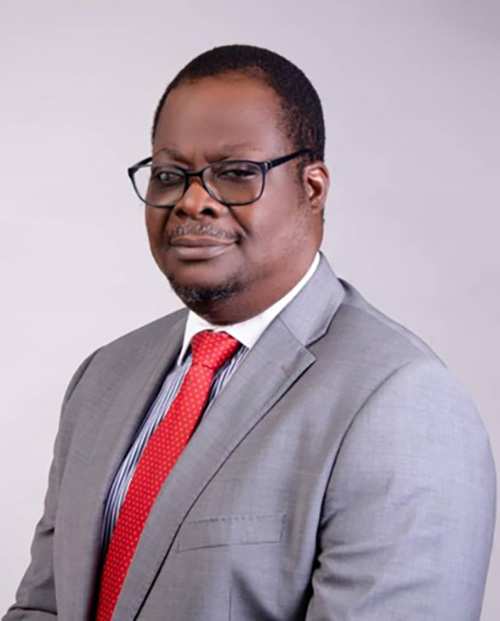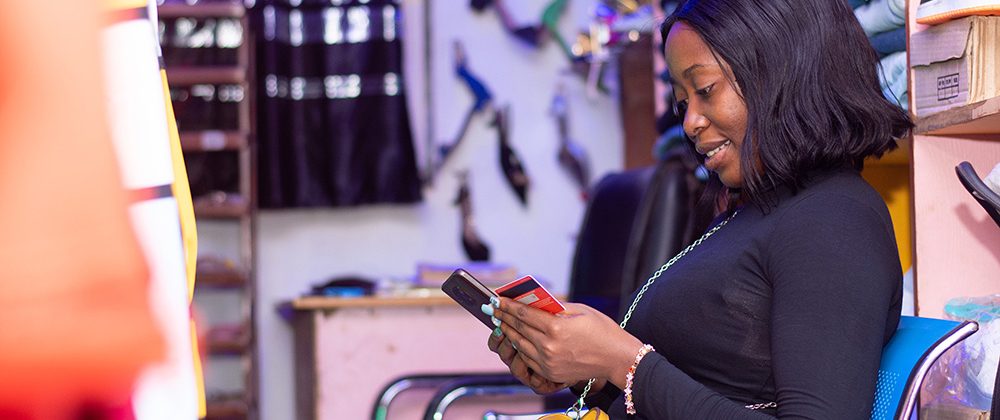Abimbola Pinheiro, CEO of O3 Capital, delves into Nigeria’s swift journey towards a cashless society, examining how digitalisation is reshaping daily transactions, enhancing financial inclusion and fostering economic growth. Discover how innovative apps and credit solutions are revolutionising financial services and paving the way for a more secure, accessible and prosperous future for Nigerians.

How people in Nigeria live their day-to-day lives and do their business is changing beyond recognition and at an ever-faster pace. The reason? The impact that digitisation is having on financial services and in particular the move to a cashless society.
The opportunities presented by the development of apps that work from smartphones have opened doors to new services and new financial providers that were never even dreamt of.
The advantages that come from the changes are widespread and can be enjoyed at every level of society and in every corner of the country.
Does cashless mean safe?
A cashless society makes purchasing and paying for many goods and services quick and, easy but most importantly secure and safe. The instantaneous payments that are possible using apps and cards through online terminals, phones tablets and laptops mean that large amounts of banknotes are now a thing of the past.
Only a few years ago Nigerian life was characterised by only the wealthy having credit cards and enjoying access to a relatively cash-free lifestyle. Everyone else was used to having the ordeal of carrying large wads of Naira everywhere they went, a tempting prospect for crime, and especially risky for small traders. Now those notes are rarely needed for everyday purchases, such as filling up fuel in a motorbike or car, buying the groceries – or transferring the rent and settling a bill. By 2022, cashless payments in Nigeria hit $525 billion – increasing by 42% year-on-year and it’s still rising.
Access to credit as a means of financial inclusion
While that shift in how we pay and are paid is in itself of great value it actually releases two further gifts we could hardly have expected – the ability for more people to have access to credit and an overall improvement in financial inclusion which liberates those on low incomes.
The ability to access micro-credit arrangements comes about because once people start to use online-based systems for financial transactions they build up a financial history they never had previously when they used cash. This record can demonstrate a person’s reliability in having regular income, no matter the size, and in making regular payments – all of which is of great value in confirming a small loan can be made. Further, once such a loan is agreed upon and the repayments are again demonstrated the data builds up into an even stronger financial record, allowing the customer to gain larger amounts of credit in the future.
SMEs and entrepreneurs benefit the most
The difference this makes to people who could not previously access credit is transformational as it means the ambitions of many – that were once held back by the lack of working capital, or the unpredictability of cash flow – can suddenly be realised. People can start or expand a small business. They can hire a member of staff or take on larger premises, they can invest in tools or transport like a motorbike.
Financial inclusion is about giving Nigerians opportunities to improve their lives themselves and they don’t need to be with a bank to do it.
Introducing four new American Express Cards to Nigeria
A local example of how such services have been developed and are still changing is O3 Capital. Currently the second largest credit card issuer in Nigeria with over 20,000 cards, it has strategically focused on issuing Naira-denominated credit and prepaid cards to the Nigerian market and has now gone further by announcing the launch of four new American Express credit cards – Green, Gold and Platinum for personal use and Gold Business for commerce – the first American Express business card issued in Nigeria.
O3’s objectives have always aligned with the Central Bank of Nigeria’s (CBN) Financial System Strategy 2020 which has been the main driver of a ‘cashless Nigeria’. By capitalizing on the CBN initiative and the increasing demand for micro-credit facilities among the growing middle-income segment of the Nigerian workforce, O3 Capital has developed its products to cater to the rapidly expanding credit card market.
Our aim is to foster a culture of credit card usage in Nigeria and leverage the opportunities presented by the changing financial landscape to the benefit of our customers. In March last year, O3 Capital established a N5billion Commercial Paper which is the first step in its strategic plan to fund the future growth of the company. Now we are seeing the fruits of that investment as we expand our services to the Nigerian public – the first company that is not a bank to provide such products.
It means that the unbanked – people who for a variety of reasons often beyond their control have not had access to banking can now access credit. The requirement for a physical bank and a bank account is no longer an obstacle.
It means that new generations of young and entrepreneurial Nigerians such as Gen Zs, millennials, SMEs and entrepreneurs can now gain all the benefits of a domestic card with Amex’s international reach – plus longer repayment periods (45 days) available for businesses. This makes travel, be it business or leisure much easier and carries less worry or the need to change currencies.
It is also a driver of economic growth, for it means Nigerians gain instant access to the global e-commerce mass market.
It has only taken four years since the publication of the Financial System Strategy 2020 for real changes to be experienced by Nigerians, and at the rate of innovations coming onstream who knows how we shall manage our lives in four more years – but the need for cash and the obstacles to accessing financial help will be even more in the distance.




